Considering that I went to a wedding this weekend (which was lovely), it shouldn't surprise anyone that today's Masculinity Monday is all about love. Well, love and the representation of Asian-American masculinity in mainstream Hollywood, but mostly love.
See, in talking about masculinity, there are a couple of things that it's easy to overlook. First, like I've complained several times, it's easy to ignore how masculinity is frequently associated with whiteness in our culture. Many of our examples of "what it means to be a real man" in film and television are constricted to explicitly white characters, while characters of color are left off the consideration and not seen as "relatable" enough to a larger audience. Which is of course crap.
Most specifically, though, Hollywood has a bit of a hangup when it comes to the representation of Asian men. Black and Latino men are bogged down in racist stereotypes, it's true, but those stereotypes tend to be about masculinity, with the implicit idea that in some weird way black and Latino men are more masculine than white men, to their detriment. And this of course weird and confusing, which we'll get to more another week. But Asian men are often seen as non-masculine, which is also very strange. They are seen as weak and feminine and "not real men".
This is reflected in the alarmingly low numbers of Asian-American leading men in Hollywood. Seriously, when you sit down and think about it, it's downright shocking how few films and television shows feature an Asian-American man as the hero. Why is this? Because Hollywood is convinced, and therefore our culture is convinced, that Asian men are not masculine enough to be the leading man. Let that sink in for a minute.
The second part we're talking about today is the fact that when we talk about masculinity we rarely use that as a jumping board to talk about how men behave in romance as well. While femininity is often constructed in light of how those women behave in romantic situations, masculinity is seen as separate from love. When a man is in love he is "getting in touch with his feminine side", which begs the question, how is it not masculine to want romance?
The underlying assumption here, which is also crap, is that men are only after sex. Any man who is pursuing romance, then, is behaving femininely, while any woman who pursues sex is behaving masculinely.
What happens when you combine these two facets of narrowly constructed masculinity? What happens when we get an Asian-American man playing a romantic hero, a character who is really not interested in sex but instead interested in love and romance?
Well, you get Selfie. And then Selfie gets cancelled.
Not to be a downer, but, yeah, that's exactly what happened. While there are a couple of other examples of Asian-American men being given leading roles in romantic stories, this is the most recent and most easily brought to mind, and it was canceled about seven episodes in, with the rest of the episodes being dumped unceremoniously on Hulu by the end of the year. So let's talk about this. Let's talk about Selfie and about Henry Higgs (John Cho), its star, and how masculinity doesn't have to be white and hyper-sexual in order to be real.
So, for those of you who missed it last year - which, given the viewing numbers was apparently most of you - here's the deal. Selfie was a half-hour sitcom based on the play Pygmalion by George Bernard Shaw. You know the story even if you don't know the name, as this play was later adapted into the musical My Fair Lady. It's a timeless tale of man reinventing woman, so timeless that the Shaw play was actually based on a Greek myth about a sculptor who sculpted a woman so beautiful he fell in love with her and she came to life.
Now, on its surface, Pygmalion is not a very empowering story for women. It's about a man who sees a woman on the street and decides that he can turn this horrible street wench into a fine and lovely lady fit for society. So he does. And in the process he falls in love with her, but he really just falls in love with his own ego and how good he is at "improving her". Yuck. The sitcom then works because it subverts this idea and substitutes a much better one: instead of Selfie being about a man fixing a woman, it's about a man and a woman helping each other. Much more evenly split, and therefore much easier to root for. So far so good.
Selfie, then, follows modern day colleagues Henry Higgs (Cho) and Eliza Dooley (Karen Gillan). They work at a pharmaceutical company together, him in marketing and her in sales, but they don't know each other well until one day Eliza's worst nightmares come true. See, Eliza is "insta-famous", by which I mean that she's something of an internet celebrity. But when an awful case of food-poisoning brings her low, she discovers that all of the internet fame in the world is no substitute for having actual friends. She's forced to admit that no one in real life really likes her.
And that brings us to Henry. Eliza knows that Henry is a marketing genius, so she comes to him (she takes the initiative and has agency in her life) to ask him to market her better. Make her more appealing to other people so that she can make friends. She's basically never had friends because she went from social outcast to internet famous with no in between period, and she has no idea how to go about it.
That's the basic premise of the show, that Henry, who is persuaded into the idea because Eliza flatters the hell out of his ego, will teach Eliza how to be a better person. What actually ends up happening is more complex.
Yes, Henry does teach Eliza how to be a better person. That does happen. Or, more accurately I think, Henry helps Eliza to be confident enough in herself to show the better person who was hiding inside her all along. But this story isn't a one-way street. Henry helps Eliza, and Eliza helps Henry learn to stop hiding from his feelings and his own desire for a more adventurous life. She teaches him that it's okay to take risks and want big things and that you're allowed to have no idea what you're doing.
Henry teaches Eliza how to grow up, and Eliza teaches Henry how to chill out. And the show deftly manages to avoid falling into manic pixie dream girl tropes by making sure that we're always aware it's a two-way street. Eliza is irresponsible and ridiculous, but she's also savvy and clever and incredibly good at her job. Henry is uptight and controlled, but he's also an emotional mess and very funny and prone to terrible life decisions.
They help each other to become better, well-rounded people. Isn't that what love is supposed to be?
Eliza is a fascinating character and we're totally going to talk more about her at some point (as well as the amazing Charmonique who had one of the most compassionate and interesting storylines about slut shaming I've ever seen), but today is all about Henry. Henry who doesn't get why anyone would actually want to have casual sex. Henry who flounders his way through romantic relationships but clearly wants that level of connection with someone. Henry who is very comfortable telling Eliza what to do but balks when she starts trying to change his life. Henry Henry Henry.
It's funny to me that people claim that characters like Henry aren't relatable to the average man because they aren't white, while characters like Indiana Jones are supposedly universal. Come on. We live in 21st century America (or at least I do), and you're claiming that an archaeologist whose idea of going on a dig is fighting Nazis over precious Jewish artifacts and can use a whip to take down an airplane is more relatable than a slightly neurotic modern man who works in marketing?
Um, no.
Henry Higgs is valuable as a character precisely because he is so relatable. I mea, come on! He's a hopeless romantic with no idea how to relate to women. He thinks he's always right. He can't use facebook without looking like a crazy stalker. He gets uncomfortable as soon as someone tries to talk to him about something other than work. Henry Higgs is incredibly relatable, and the value there is that because he is so relatable, the lessons we can learn from his representation of masculinity require much less interpretation to bring into our own lives.
What are those lessons? Well, for starters, they are that wanting romance is not the same as pursuing romance. Henry wants romance. He likes romantic relationships and he wants to be in love with someone. He wants romance. But he's not actually very good at, or even particularly inclined to, pursuing it. He doesn't do anything about these desires until Eliza and Charmonique push him. And even then, Henry chooses the simplest possible option, dating a woman who is exactly like him.*
So he wants love but he doesn't translate that into pursuing love. I think that's pretty common. The big shift in the show comes when Henry finally realizes that he is in love with Eliza and decides to do something about it. Not something obvious or showy, but simply makes a choice to pursue this love and pursue Eliza's heart when they are both in a good place to do so.
Along in there, the show is trying to tell us that Henry isn't wrong or bad for being out of touch with his feelings, but he is unhappy. And this is an important distinction. It doesn't say he's a bad man for being bad at feelings, but it doesn't say he's a good man for it either. He's not more masculine because feelings are hard, and he's not more feminine at the end because he's finally self-aware. Self-awareness and emotion are not gendered.
Arguably one of the more powerful ways the show gets at this is by pointing out that both Henry and Eliza are bad at feelings and repressing everything all the time. Neither of them is inherently better at their emotional maturity because men and women are both endowed with an equal ability to understand ourselves.
And it think all of this is made more interesting and complex in the story precisely because Henry is played by John Cho. Henry being Asian-American makes for a better story because it gets at those other stereotypes sideways. While we're examining what it means to be a man and a romantic lead, we're also examining how all those old stereotypes about Asian-American men being weak and feminine can be disassembled. By combining these two tropes, the feminine romantic lead and the feminine Asian man, we can break them both.
Which is, ultimately, what I think the show does. Henry pushes aside stereotypes about Asian men not because he directly confronts them, but because he is so fully characterized that he never becomes a stereotype himself. Yes, he fits the ideas about Asian men being naturally hard-working and studious and "nerds", but he also loves Blues Traveler and isn't good at technology and really likes Gwen Stefani. In other words, he's complex and that takes pressure off of his race.
Similarly, because Henry is a complicated and interesting character, his slowly burgeoning feelings for Eliza never come off as the writers getting desperate or the degradation of his character. He is allowed to be masculine and nerdy and Asian and in love without any of it conflicting because he's a person. And that's all that is actually required.
I've been rambling, so let me sum it up: don't write stereotypes, write people. Asian men are not inherently less masculine than anyone else, but the solution to that isn't necessarily to make a show where every Asian male character is constantly bench-pressing weights or hitting on women loudly or being gruff or driving a pickup truck. The solution isn't to fix the problem by buying into other stereotypes about what masculinity is or is not. The solution isn't to make it so that we don't have Asian-American men as romantic leads because it will make them look weak.
The solution is to write fully developed and realized characters and a lot of them. The solution is a deluge of complex and interesting Asian men on screen, men who are masculine simply because they are men. Good role models. Bad role models. Men who scream at spiders and men who kill without remorse. We need more data points for this chart. We need to see more Asian men on screen so that we can understand masculinity as more than just a white people thing.
And we need someone to bring Selfie back. Just saying, this show was gold.
*Don't take this as a dig on Julia, by the way. I love Julia and it's not her fault that Henry is bad at feelings.



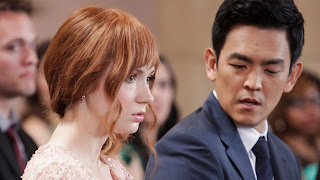
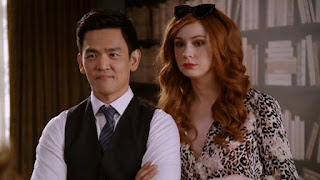
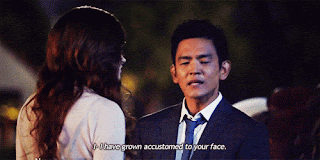
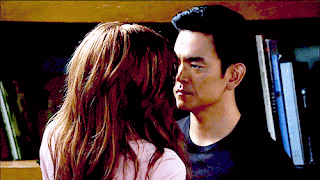
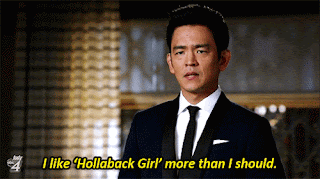
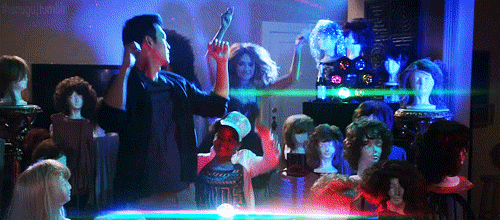
I wanna cry at this post, it's so beautiful and explains exactly what's on my mind. It's been 3 years now but still, thank you. Thank you for appreciating Henry and him being a human being regardless of his race. I love it that someone like you feels the same way I do.
ReplyDeletea combination that has proven irresistible to many couples who wish to create a wedding look and atmosphere that is beyond the ordinary.asian wedding videography London
ReplyDeleteThis comment has been removed by the author.
ReplyDeleteThis comment has been removed by the author.
ReplyDeleteThis comment has been removed by the author.
ReplyDeleteThis comment has been removed by the author.
ReplyDeleteESCORTS SERVICES
ReplyDeleteINTERNATIONALSEX GUIDE KOLKATA
CALL GIRLS NEAR ME
CALL GIRLFRIEND RELATIONSHIP
ESCORT SERVICES
KOLKATA SEX
CALL GIRL IN KOLKATA
ESCORT SERVICE IN KOLKATA
GIRLS WHATAPP NUMBER
ONLINE GIRLS
FEMALE ESCORTS
FEMALE ESCORT
CALL GIRL NAME AND MOBILR NUMBER
CALL GIRL KOLKATA
ESCORTS SERVICE
MASSAGE IN KOLKATA
GIRLS PHONE NUMBER
INDIAN MASSAGE PARLOUR SEX
ESCORTS SERVICES
CALL GIRLS NO
CALL GIRLS KOLKATA
BEAUTIFUL SEXY GIRLS
ESCORT KOLKATA
ESCORTS KOLKATA
ESCORT IN KOLKATA
ESCORTS IN KOLKATA
COLLEGE GIRL HOT
ESCORT SERVICE KOLKATA
KOLKATA VIP ESCORTS